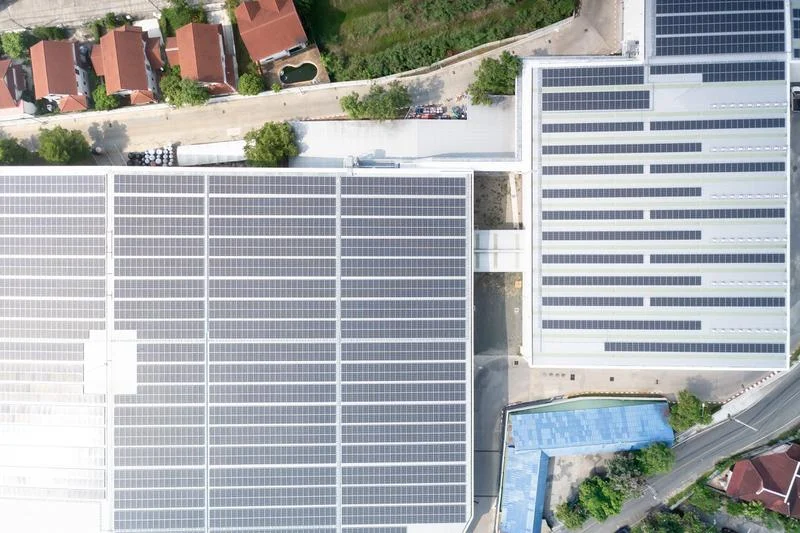Energy storage technology has become much in vogue, and hence the distinction between lithium-iron phosphate batteries and lithium-ion batteries is taking on more importance. Both are, indeed, an extremely broad family of lithium-based batteries, but with significant differences in chemistry, performance, safety, and applications.
In this manual, we will clarify all of the differences and help you select which battery is best for your application that is working with a renewable energy device, outfitting your RV, or powering a smart gadget.
What Makes LiFePO4 and Lithium-Ion Batteries Different?
Before we understand the comparison between these batteries, we need to understand the materials that have a very marked influence on performance. Making comparisons on the basis of parameters of chemical composition and stability.
Lithium iron phosphate battery:
Cathode: lithium iron phosphate
Anode: metal-added graphite carbon
Structure: olivine crystal structure, and highly stable
Result: heat and chemical stability, which is very high thermal and chemical stability.
Conventional lithium-ion batteries (such as NMC, NCA, LCO):
Cathode: nickel, manganese, cobalt, or aluminum oxide
Anode: Generally graphite.
Result: Less stable, better with energy density.
Conclusion: LiFePO4 is a winner in structural safety and thermal stability.
Safety: Is One Chemistry More Reliable?
Safety should always come first in energy storage.
What makes LiFePO4 so special in safety?
The chances of thermal runaway to occur are significantly reduced.
It won't burn or explode even under high-voltage conditions.
This is highly suitable for home use, medical equipment, and mobile phones.
Lithium-ion batteries are more dangerous.
They can overheat and/or catch fire.
They are prone to overcharging and any physical damage.
They require a very strong battery management system (BMS) to control them.
Due to such unparalleled safety performance, LiFePO4 has captured the hearts of many.
Lifespan and Durability: Which One Lasts Longer?
Battery longevity has a direct bearing on our overall lifetime cost and sustainability. These batteries have a long lifespan of 2,000 to 5,000 cycles or beyond: LiFePO4. Life for Li-ion batteries like NMC or NCA is somewhere from about 500 to 1,500 cycles. LiFePO4 batteries deteriorate very gradually, and will therefore perform consistently for years making them suitable for long-term use such as in solar array systems or off-grid applications.
Overall, LiFePO4 batteries are just the best option, especially for long periods of use.
Energy Density: Compactness vs. Performance
Although these batteries have their merits, it is necessary to balance them. The advantages of lithium-ion batteries: Lithium-ion batteries possess very high overall energy density ranging from 150 to 250 watt-hours per kilogram. Small and light, it would be appropriate for electric cars, smartphones, or drones. Lithium iron phosphate’s relative energy density falls around 90-120 watt-hours per kilogram, and since that is itself very heavy and inflexible, not so much the best for products that care very much about weight. Therefore, if one needs a very small and slender power source, lithium-ion batteries could be great alternatives.
Temperature Performance: Heat vs. Cold Tolerance
LiFePO4: Performs better in high-heat conditions
Lithium-Ion (NMC/NCA): Performs better in cold environments
Cost Efficiency: Upfront Price vs. Lifecycle Value
Upfront Expenditures:
Lithium-ion: Usually first time cheaper.
LiFePO4: A bit more costly when purchasing.
Long-term Value:
IiFePO4 is per cycle less expensive because of longevity, making it appropriate for cases where longevity is valued more over cost.
Sustainability and Ethical Sourcing
LiFePO4 environmental friendliness:
No nickel, no cobalt. Hazardous to mine for environments.
Fewer ethical supply issues and a smaller footprint environmentally.
Li-ion Problems:
Heavily dependent on a combination of cobalt and nickel, which destroys environments when mined; also suspected of exploitative labor practices.
Hence, give preference to LiFePO4 if an individual cares for conservation at the ecosystem level along with ethical sourcing.
Real-World Applications: Which Battery Works Best Where?
| Application | Best Battery Type | Reason |
| Electric Vehicles | Lithium-Ion (NMC/NCA) | High energy density, lighter build |
| Solar Energy Storage | LiFePO4 | Long cycle life, safe and low maintenance |
| Marine/RV Systems | LiFePO4 | Rugged, stable, deep-cycle reliability |
| Smartphones | Lithium-Ion (LCO/NMC) | Compact size and quick recharge |
| Off-grid Installations | LiFePO4 | Resilience and durability |
| Power Tools/Drones | Lithium-Ion | Lightweight and high performance |
LiFePO4 vs Lithium Ion: Final Thoughts
Under your top conditions such as concerns of safety, long life, and environment friendliness while not minding slight additions to battery size, then the clear winner would be LFP batteries. But if your application describes the need for lightweight batteries having high energy density and lower initial cost, then lithium-ion batteries like NMC or NCA may be suited.
This technology is moving so fast and, as things stand, what costs little are getting complicated with the advancement in technology and scaling of production. At Huijue, we are focusing on intelligent, scalable energy storage solutions to be able to provide the different user needs independent of battery material selection.
FAQs
- Can you directly replace lead-acid batteries with LFP batteries?
Yes, most of come from three plug-ready LFPs, internal battery management system (BMS) included, so have an incredibly simple installation.
- Do you require special chargers for LFP batteries?
Not necessarily. Just use a wider charger within the correct voltage range and current limit ,but an optimized charger will give the best performance for LFP batteries.
- Do these batteries experience a memory effect?
No. Like most lithium batteries, lithium iron phosphate batteries have no memory effect and allow more flexible charging modes.
- What battery has the least self-discharge rates?
Lithium iron phosphate batteries typically have a low self-discharge rate and would be better suited for storage over a long time.
- Are lithium iron phosphate batteries dangerous to use indoors?
Safe. They are some of the safest to have as batteries, and they can be used in homes and offices.


 Afrikaans
Afrikaans Albanian
Albanian Amharic
Amharic Arabic
Arabic Armenian
Armenian Azerbaijani
Azerbaijani Basque
Basque Belarusian
Belarusian Bengali
Bengali Bosnian
Bosnian Bulgarian
Bulgarian Catalan
Catalan Cebuano
Cebuano Chichewa
Chichewa Chinese (Simplified)
Chinese (Simplified) Chinese (Traditional)
Chinese (Traditional) Corsican
Corsican Croatian
Croatian Czech
Czech Danish
Danish Dutch
Dutch English
English Esperanto
Esperanto Estonian
Estonian Filipino
Filipino Finnish
Finnish French
French Frisian
Frisian Galician
Galician Georgian
Georgian German
German Greek
Greek Gujarati
Gujarati Haitian Creole
Haitian Creole Hausa
Hausa Hawaiian
Hawaiian Hebrew
Hebrew Hindi
Hindi Hmong
Hmong Hungarian
Hungarian Icelandic
Icelandic Igbo
Igbo Indonesian
Indonesian Irish
Irish Italian
Italian Japanese
Japanese Javanese
Javanese Kannada
Kannada Kazakh
Kazakh Khmer
Khmer Korean
Korean Kurdish (Kurmanji)
Kurdish (Kurmanji) Kyrgyz
Kyrgyz Lao
Lao Latin
Latin Latvian
Latvian Lithuanian
Lithuanian Luxembourgish
Luxembourgish Macedonian
Macedonian Malagasy
Malagasy Malay
Malay Malayalam
Malayalam Maltese
Maltese Maori
Maori Marathi
Marathi Mongolian
Mongolian Myanmar (Burmese)
Myanmar (Burmese) Nepali
Nepali Norwegian
Norwegian Pashto
Pashto Persian
Persian Polish
Polish Portuguese
Portuguese Punjabi
Punjabi Romanian
Romanian Russian
Russian Samoan
Samoan Scottish Gaelic
Scottish Gaelic Serbian
Serbian Sesotho
Sesotho Shona
Shona Sindhi
Sindhi Sinhala
Sinhala Slovak
Slovak Slovenian
Slovenian Somali
Somali Spanish
Spanish Sundanese
Sundanese Swahili
Swahili Swedish
Swedish Tajik
Tajik Tamil
Tamil Telugu
Telugu Thai
Thai Turkish
Turkish Ukrainian
Ukrainian Urdu
Urdu Uzbek
Uzbek Vietnamese
Vietnamese Welsh
Welsh Xhosa
Xhosa Yiddish
Yiddish Yoruba
Yoruba Zulu
Zulu